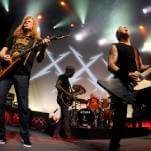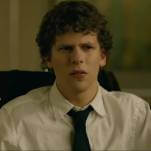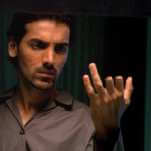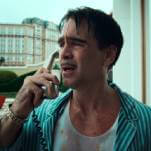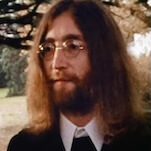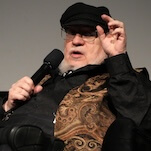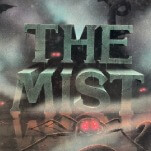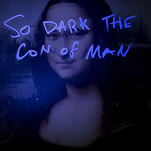A miscalculation of scope forms the most frequent problem within the biopic genre. Attempting to encompass the entire life of a person in the span of a few hours whittles down intricacies into an artificial narrative with expected patterns. The best biographical projects attempt to eschew that structure and well-worn form, focusing on a short period of time in the life of a historical figure or cultural icon without trying to draw a through line across decades of multitudinous events.
This is the major problem with all-encompassing documentary projects as well, glomming together years and years of decisions and events into a short amount of time to fit one version of a life story. It gets incredibly frustrating to watch the same tropes pop up in reducing a life into an easily digestible program. Even in 30 For 30 and Nine For IX, the urge to toss everything and the kitchen sink into the story of how Venus Williams carried on Billie Jean King’s campaign for equal prize money for Wimbledon championships or Katarina Witt’s career as an amateur and professional figure skater in East Germany sometimes overpowers what would otherwise be wisely limited episodes.
It’s certainly admirable for PBS to choose King as the first athlete in the series. She’s been a vocal force for women’s rights since the beginnings of the movement in the 1960’s, advocating for feminists to more actively engage with high-profile professional female tennis players as positive symbols for equality. She defied expectations and limited standards of femininity on the court with her competitive behavior. And perhaps most importantly, she dominated tennis in her professional career, racking up 12 grand slam singles titles (and a boatload more in doubles and mixed doubles). She was the kind of athlete we desperately need more of today: a popular politically and socially active role model who used athletic prominence as a force for good instead of shying away from activism to protect personal moneymaking interests.
As with most other American Masters installments, this is a perfectly competent overview of the major events in Billie Jean King’s life, from her childhood devotion to athletics with her gruff but encouraging father, to her rise to elite athletic status, to separating herself from her peers, and then dominating the fledgling professional circuit. And of course, a large portion of the running time focuses on the infamous Battle Of The Sexes match with 55-year-old former top-ranked male tennis player Bobby Riggs. But all along the way, the documentary hits upon points that deserve more than a passing mention. King’s childhood realization—if the intellectual complexity of looking around and wondering, “Where is everybody else?” can be believed—suggests a more nuanced and exploratory analysis of the evolution of her sport and how King evolved into an activist. This episode recounts events where King took a leadership role in establishing a pro tennis circuit for women, campaigning for equal prize money and establishing herself as a positive role model for the feminist movement, but it doesn’t get to the root of why King took on that position, what about her personality and life philosophy led her to those choices.
The other drawbacks to this documentary are the usual ones involved with an American Masters project: It doesn’t examine any negative aspects in detail, instead painting a unanimously happy advertisement for King’s cultural significance. A series like this strips away any balanced examination in canonizing another American icon. That bent leads to a lot of intriguing biographies that maintain a monotonous, reverent tone.
It is at least troubling and at most wholly embarrassing that the issue of Bobby Riggs has resurfaced in sports circles in the weeks leading up to this première. The American Masters overview bills the match as one where King emerged victorious because of rigorous preparation—as popular culture has done nearly without exception. However, ESPN’s Outside The Lines story on Riggs’ organized crime and gambling issues is some damning evidence that the Match Of The Century didn’t have nearly the squeaky clean feminist victory that I Love The ’70s would have you believe. It’s impossible to know the truth now, since Riggs passed away almost 20 years ago, but the revelations dampen the triumphant sequences of King’s victory. And that King continues to deny any possibility of a false result speaks both to her fierce competitive nature and her own belief in the myth built around that match. Riggs played a huckster pig, and it made him a brighter star in his 50s than success on the court ever did as a young man, but just because he was offensive and backwards in public doesn’t mean he wasn’t also a selfish and semi-shrewd gambler always out to make more money.
This is yet another story of King’s life that uses that match as the most significant event, claiming it was a shot-heard-round-the-world moment that galvanized a movement. Sure, it’s the most well-known moment in King’s career—overshadowing her titles—but it is somewhat disheartening to watch countless players detail King’s fascinating leadership skills, then hear those skills overshadowed by the time a female champion in her prime beat a 55-year-old chauvinist carnival barker playing the jester to drum up publicity for a giant payday to settle debts.
Far more intriguing is what King describes as the darkest period of her life: being forcibly outed as gay by her ex-lover at a time when homosexuality threatened to make anyone a pariah. King mentions her secretary and ex-lover Marilyn Barnett in passing at one point, acknowledging she was just coming to terms with her sexuality around the time of the Riggs match. And when the lawsuit comes up toward the end of the documentary, the most untapped period of King’s life gets but a few minutes of screen time. At a time in modern culture when King’s introspection on being forced out of the closet and coming to terms with her sexuality might do the most good, American Masters’ structure of introductory biography summarizes where it should hunker down and ruminate.
King took that public difficulty—the complex anger and shame and embarrassment at the invasion of privacy—and turned it into an asset. She became not only an activist for women’s rights, but for gay rights as well. Precious little time is spent on that period of King’s life. Unlike the match against Riggs—which has been mythologized again and again ad infinitum in the decades since—those months frame King’s life in terms of progressive activism, taking a path that precious few modern athletes tread, for fear of hurting their brand, often at the behest of consulting hangers-on.
This episode of American Masters sets out to provide an overview of two artificially constructed halves of Billie Jean King: the athlete and the activist. But in breaking down her entire life into easily digested chapters—especially the obligatory current events portion on her nonprofit work and friendship with Elton John—this documentary plainly displays the shortcomings of the standard television biography.






